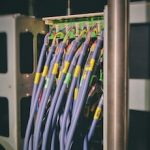The removal of petrol subsidies has sent prices soaring in Nigeria, hitting transporters hard. However, Enugu-based engineer Chukwuemeka Eze is providing relief by converting fuel tricycles into electric kekes.
Eze, an electrical engineering graduate from the University of Nigeria Nsukka, helped build Nigeria’s first electric car in 2019. But rather than rest there, he started the green energy company Revive Earth in 2021 to electrify existing vehicles.
“What motivates me most is the idea of working in the future. It never feels boring,” he said. Eze chose Keke tricycles for their simplicity, low cost and market penetration. Apart from keke tricycles, he is also electrifying minibuses.
Engineering was always Eze’s passion, even as a child, tinkering with radios despite punishment. After an electronics apprenticeship, he honed his math skills despite failing WAEC exams twice. This led him to study engineering at university.
But after two years, Eze realised conventional engineering wasn’t for him. He pursued unconventional engineering through online tutorials, analysing theories hands-on. This led him to embedded systems, programming and a love of electric vehicles inspired by Tesla.
Eze’s big break came when UNN head Professor Ozoemena Ani returned from a conference intent on building an electric car. Eze joined the student team enduring four intense months to launch Nigeria’s first local EV, Lion Ozumba 551, in 2019.
“It exposed me to more than four years of schooling. It made me rethink EVs’ potential in Nigeria,” Eze said. He decided electric vehicles would be his purpose, seeing the great need.
With this experience, Eze founded Revive Earth. In two years, they have electrified five tricycles and two bikes and will soon launch an electric minibus. Batteries are sourced from China and assembled in Enugu to suit each vehicle.
“Our goal is sustainable transport for Africa using 4IR tech like AI and IoT,” Eze explained. The kekes use 5kWh batteries, costing N215 to charge fully. This takes 1.5 hours and covers 60km for 40% of what drivers pay for fuel. The quiet EVs plug into regular outlets to charge.
Eze seeks USD 800,000 to expand manufacturing and aggressively market to Nigerians. He argued electric vehicles create commercial electricity demand, making mini-grids more lucrative. With ground-up EV manufacturing tailored locally, Eze envisions a transformation in energy and transport.
Revive Earth is already training technicians as licensed agents to handle conversions and maintenance. This allows the company to focus on manufacturing systems. Eze believes they are revolutionising African industry through purpose and resilience.
“The same reasons people doubt EVs in Nigeria are why they can succeed. EVs create electricity demand, attracting investors. If we subtly electrify transport, we transform energy and mobility forever,” Eze stated.





